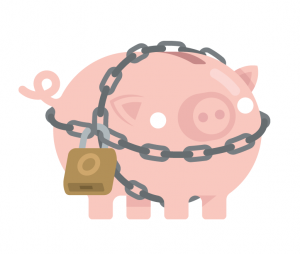Protect your Cash – Learn to be Savvy with Investments
The path to financial security can be a long and winding road that can present you with several roadblocks and issues to contend with along the way. That wrong turn could see you lose money that you’ve worked hard to earn and invest, read on for some key things to consider to protect your cash & learn to be savvy with investments.
It’s all too easy to be dazzled by the bright lights of an investment opportunity that offers tempting returns, so how do you know if it’s genuine or a scam?
Over $15 billion of investors’ money is lost each year on average. And the figure is increasing, so it makes sense to use resources like this one, to fill in any gaps in your financial knowledge.
Here are some key questions to ask when contemplating a financial investment:
What are the main issues to be wary of when it comes to scams?
Scams take many forms and financial fraudsters can try several different tricks such as making you believe they are someone more trustworthy than they really are and offer tempting investment returns that turn out to be too good to be true.
How do I avoid the pitfalls and get into investing in a safe way?
One of the fundamental keys to avoiding a scam is to aim to maintain and improve a good level of financial education by reading about the common mistakes that investors can make. It also requires a bit of time spent researching a financial opportunity, and you will often be surprised how quickly you can get a feel for whether something feels right or looks wrong.
Use various trusted guides to create a checklist of points that need ticking off before you commit any of your cash to any investment.
Where is the best place to get advice?
Good financial advice is out there, and genuine investment opportunities are more plentiful than the scams, but you want to be presented with those opportunities by people you can trust.
Ask friends and family about their experiences and see if you can get some suitable referrals. In addition to this, do your own research and checks so that you are comfortable with where your money will be invested in terms of the risk level and structure of the investment.
What’s the difference between saving and investing?
This is a question often asked by new investors and the simple answer is that savings are spare cash that you can easily access for financial emergencies and short-term savings goals. Investing is about committing money over a longer term to get better returns, on the understanding that it is not always possible to get your money back in a hurry if you need it.
A good balance would be to have some savings in cash and longer-term investments aimed at improving your financial future.
Note from HelloGrads:
Investments can certainly offer higher returns, but they also carry greater risk. Just be aware that the value of your investment can go down as well as up. As Joel says, always get advice from a trusted source.
Guidance to better investing and investment scams can help you avoid the pitfalls and give you access to some top line tips for getting into investing. Plus it will give you a useful checklist of things that you need to confirm and verify before putting your money down.

Check out this investment scam guide which aims to provide some valuable pointers on the various schemes and methods that fraudsters use to part you from your cash. It should prove very useful for new investors who could do with some help with spotting the classic warning signs and offers that are too good to be true.
Getting a financial education and learning to be savvy with your money could prevent you from becoming one the many victims of investment scams who suffer a financial loss each year.
by Joel Foster
For more on being money savvy:
When To Save
Save or invest your hard earned cash? Things to consider to help you decide


Please log in or sign up to comment